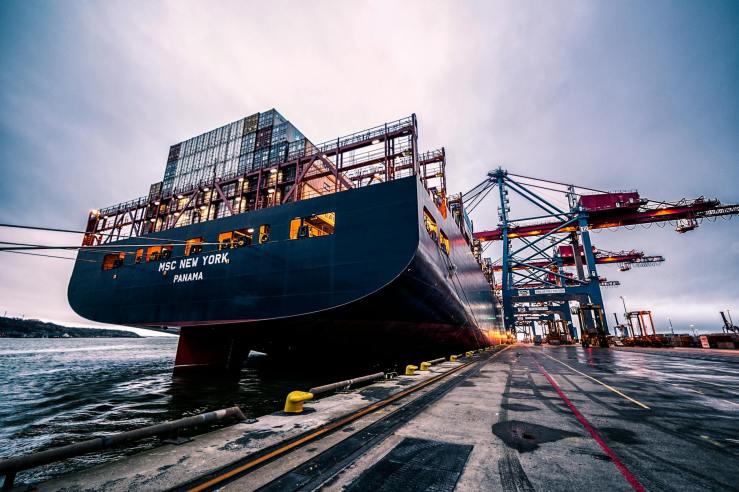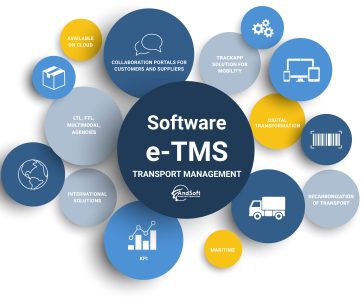Barcelona, February 21, 2021.- Foreign trade between Europe and Asia is being reconfigured with new efficient routes adapted to military crises in different strategic locations:
The following information is an analysis from the Trend news agency:
The Middle Corridor is an effective alternative route for freight transport connecting China and Central Asian countries with Europe via the Caspian Sea, South Caucasus and Türkiye, Umberto de Pretto, Secretary-General of the International Road Transport Union (IRU) told Trend in an exclusive interview.
“The Middle Corridor is a vital link connecting Europe and Asia, unlocking their economic potential. It also offers an alternative option to existing trade corridors, while offering a faster trade route. Despite geopolitical challenges, east-west trade has been growing. For example, trade between Europe and China reached a record high of $847 billion in 2022. Between January and August 2023, freight volumes from China to Europe along the Middle Corridor increased by 84 percent compared to the same period in 2022, reaching over 1.6 million tonnes. Looking ahead, we can expect transit freight volumes to increase by at least five-fold,” he said.

De Pretto noted that intramodality plays a pivotal role within the Middle Corridor amid growing volumes of trade, harmoniously combining different modes of transport, and intermodal transport along the Middle Corridor has proven to be very efficient.
“However, border crossings are unable to cope with these growing volumes. Drivers are spending days, and sometimes weeks depending on the season and crossing point, at borders. We have the tools, such as International Road Transport (TIR) system, to streamline border crossings. Governments just need to act and enact these tried-and-tested trade facilitation instruments,” he said.
“To deal with increased traffic at congested border crossings, both hard and soft solutions are required. To fully implement the Middle Corridor’s potential and increase its capacity, we must shift our strategic focus to creative soft solutions that assist trade and travel. For example, building infrastructure along the crowded Sarp-Sarpi border between Georgia and Türkiye is nearly impossible due to the presence of mountains on one side and water on the other. Soft solutions, especially those focused on digital operations, are the only realistic path ahead,” he explained.
De Pretto said that harmonized tools, namely TIR and CMR, already cover all countries along the Middle Corridor. It is necessary to further enhance them, notably via digitalization.
He noted that, together with the members and with the support of development partners, the IRU had automated the TIR processes in all Central Asian countries. Significant progress has been made in this region in digitization of all aspects of the TIR, as well as the creation of special lanes for safe freight transport.
He noted that governments need to start by implementing legislation, such as the UN eCMR Protocol, to allow and enable their use by logistics companies and exporters. A swift transition from paper documents to a digital exchange of data on transit, transport, and customs procedures, as well as permits and visas, has never been more urgent. Moreover, de Pretto said that digitization of transport and transit globally has been at the heart of IRU and the industry’s trade facilitation efforts.
The Secretary-General of the IRU also highlighted the increasingly critical role of Azerbaijan in regional and east-west trade, emphasizing that the IRU is in constant contact with public and private Azerbaijani partners, including the Azerbaijan International Road Carriers Association.
“For example, during the latest General Assembly of the Union of Road Transport Associations in the Black Sea Economic Cooperation Region in Baku, optimizing transport along the Middle Corridor was central to our discussions with Azerbaijan’s Chairman of the State Customs Committee,” he said.
The issue of decarbonization in the transport sector of Central Asian countries was addressed. De Pretto pointed out that for decarbonization, long-term investments in viable alternative fuels and the necessary infrastructure for medium- and heavy-duty commercial transport are essential. Additionally, increasing the utilization of buses, known for their eco-friendliness and safety, is crucial for advancing decarbonization efforts in the transport sector.
Author of Information and Photo credit: Trend.az







